National forecast for Thursday, September 3
Fox News senior meteorologist Janice Dean has your FoxCast.
The 14th named storm of the 2020 Atlantic hurricane season made landfall in Belize early Thursday after bringing flooding to neighboring Honduras.
The U.S. National Hurricane Center (NHC) in Miami said that Hurricane Nana made landfall around 1 a.m. CDT on the coast of Belize between the coastal towns of Dangriga and Placencia, an area around 50 miles south of Belize City.
The storm packed winds of 75 mph when it made landfall, making it just barely a Category 1 hurricane.
NANA TO BECOME HURRICANE BEFORE LANDFALL IN BELIZE
"A station on Carrie Bow Cay reported a wind speed of 61 mph (98 km/h) as Nana's center passed just to the south," the NHC tweeted.
Later in the morning, Nana weakened to a tropical storm with maximum sustained winds near 70 mph.
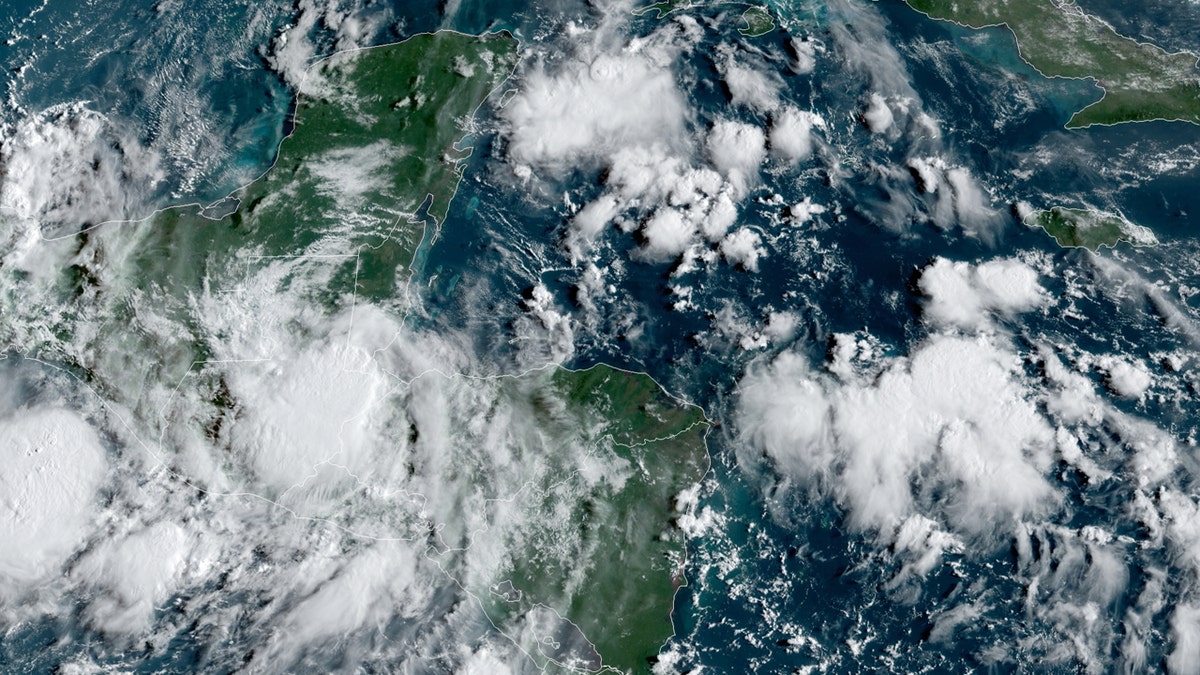
Tropical Storm Nana is moving over Central America, bringing heavy rain and the threat of mudslides.
As of 8 a.m. EDT, Nana is now inland over northern Guatemala packing winds of 60 mph and moving west-southwest at 15 mph.
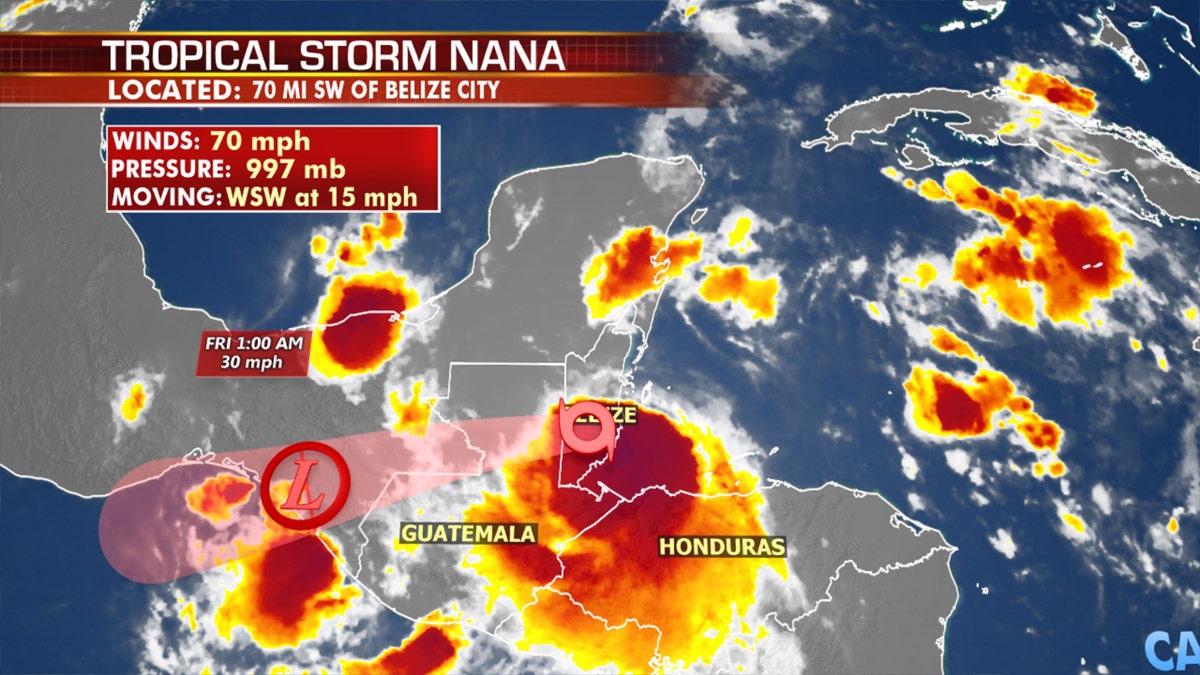
Tropical Storm Nana continues to impact the region after making landfall in Belize.
Heavy rain will spread across Belize, Guatemala and Honduras over the next several days, causing flooding and mudslides. Isolated rain amounts of up to 10 inches are possible in some areas.
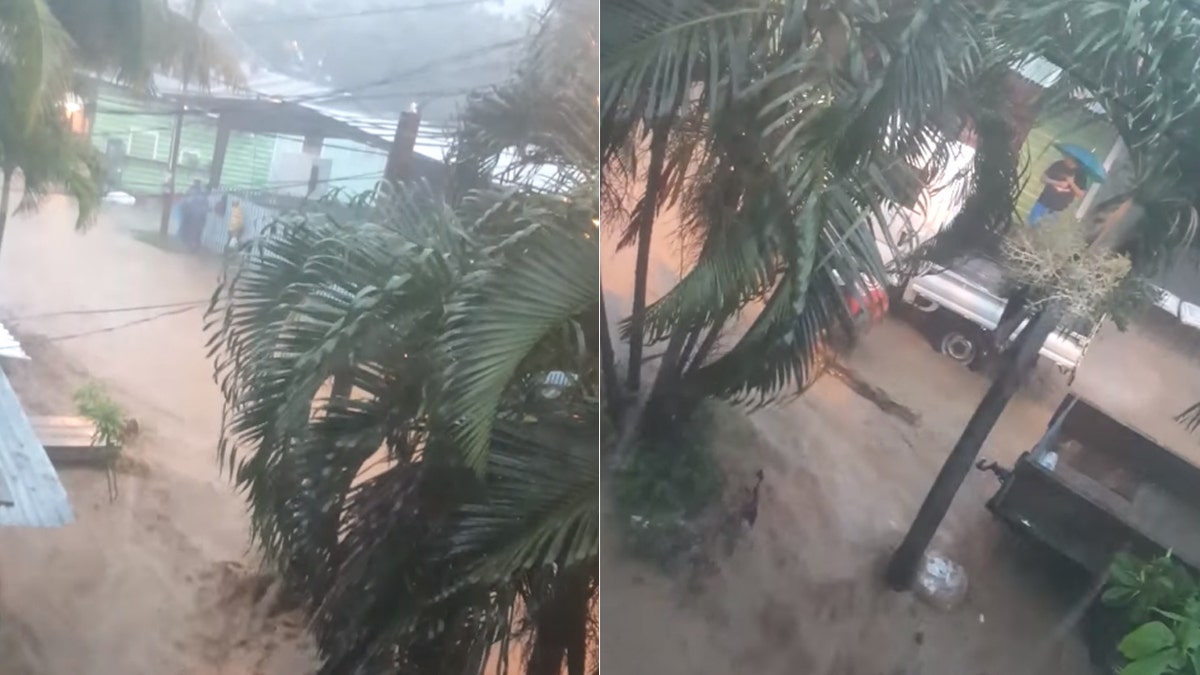
A flooded street and heavy rain in Coxen Hole, on the island of Roatan, Honduras, as Nana passed by on Wednesday. (COPECO)
Nana had reached hurricane strength overnight after hitting the coast of Honduras. It was the fifth hurricane of the season.
Video from Wednesday showed a flooded street and heavy rain in Coxen Hole, on the island of Roatan, Honduras.
Thousands of people in Belize stocked up on food, water and construction materials Wednesday ahead of the landfall.
Long lines stretched through supermarkets and hardware store shelves were nearly bare as residents of Belize bought materials to board up windows and doors.
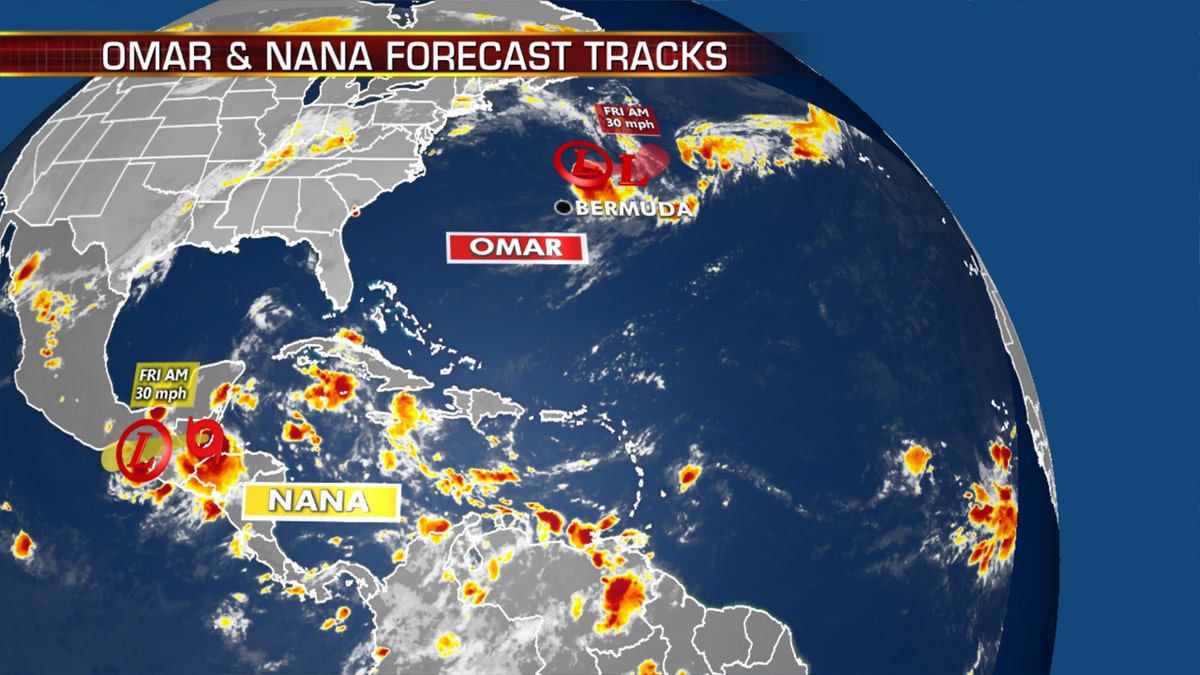
The current tropical activity in the Atlantic basin. (Fox News)
The other current storm in the Atlantic, Omar, has weakened to a tropical depression.
Omar is passing well north of Bermuda and is forecast to dissipate later on Thursday, according to the NHC.
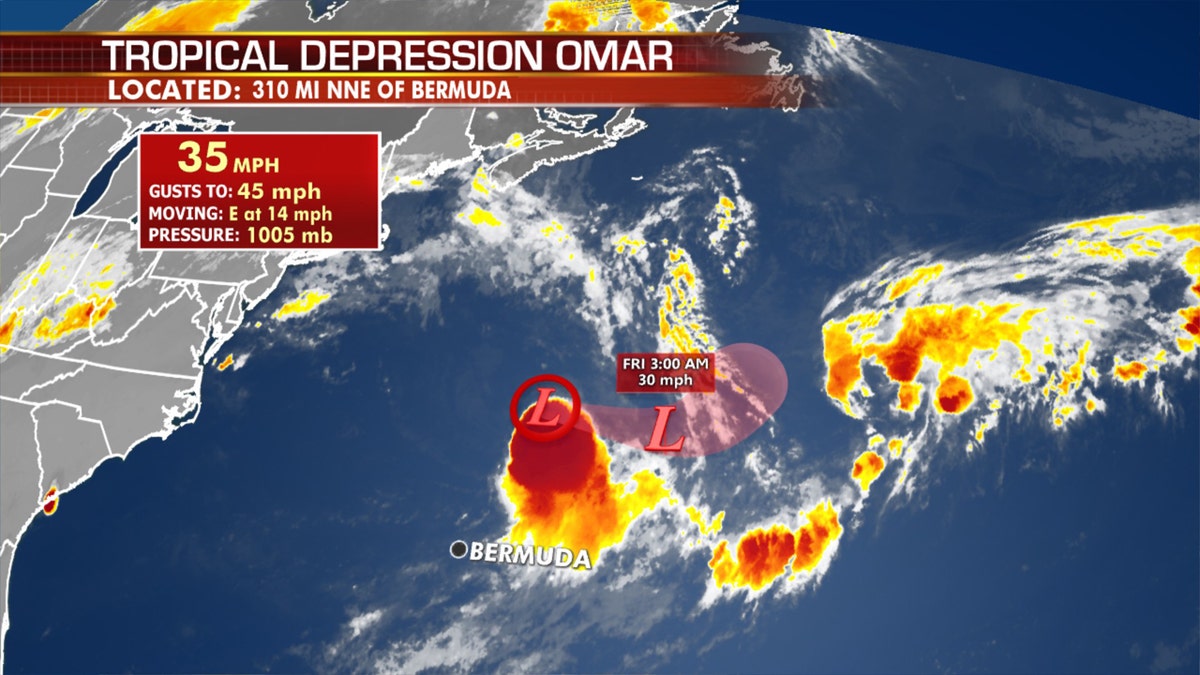
Omar has now weakened to a tropical depression as it passes north of Bermuda. (Fox News)
No major tropical storms will affect the U.S for the next several days, but a disturbance off the coast of Africa will have to be watched for possible development this weekend into next week.
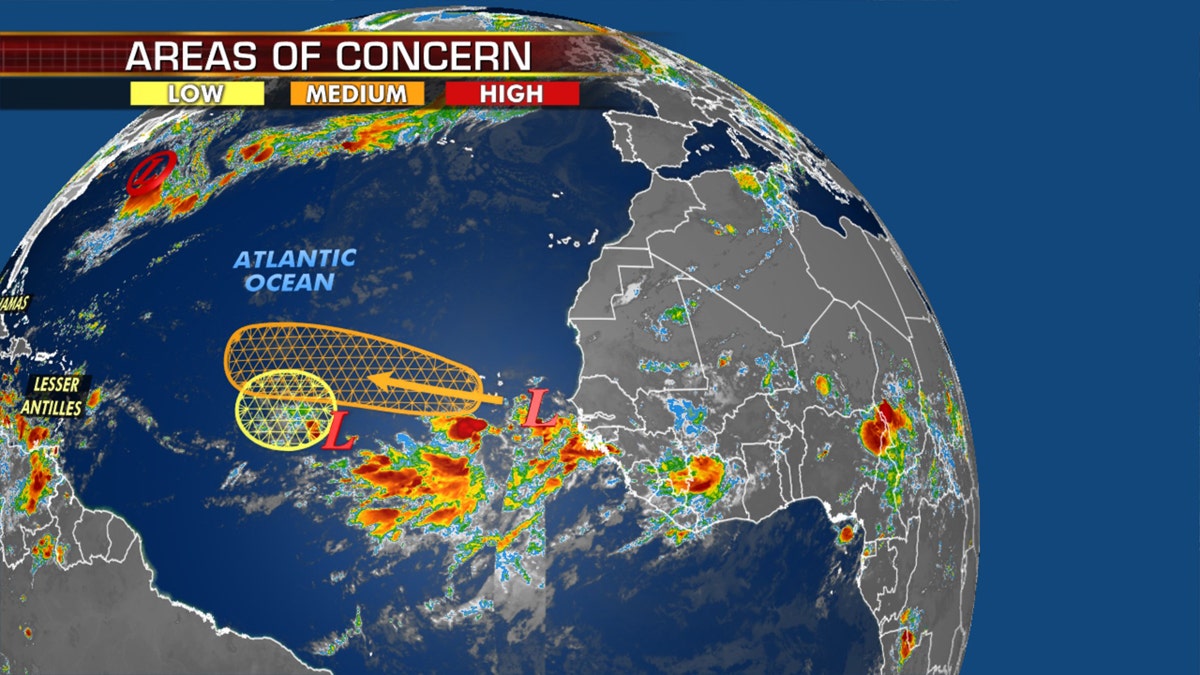
The next area being monitored for possible tropical development. (Fox News)
Nana and Omar were the earliest 14th and 15th named storms on record, beating the 2005 arrivals of Nate on Sept. 6 and Ophelia on Sept. 7, according to Colorado State University hurricane research scientist Phil Klotzbach.
CLICK HERE FOR MORE WEATHER COVERAGE FROM FOX NEWS
This 2020 season has been active so far, with several storms breaking records for their respective letter for how early they formed.
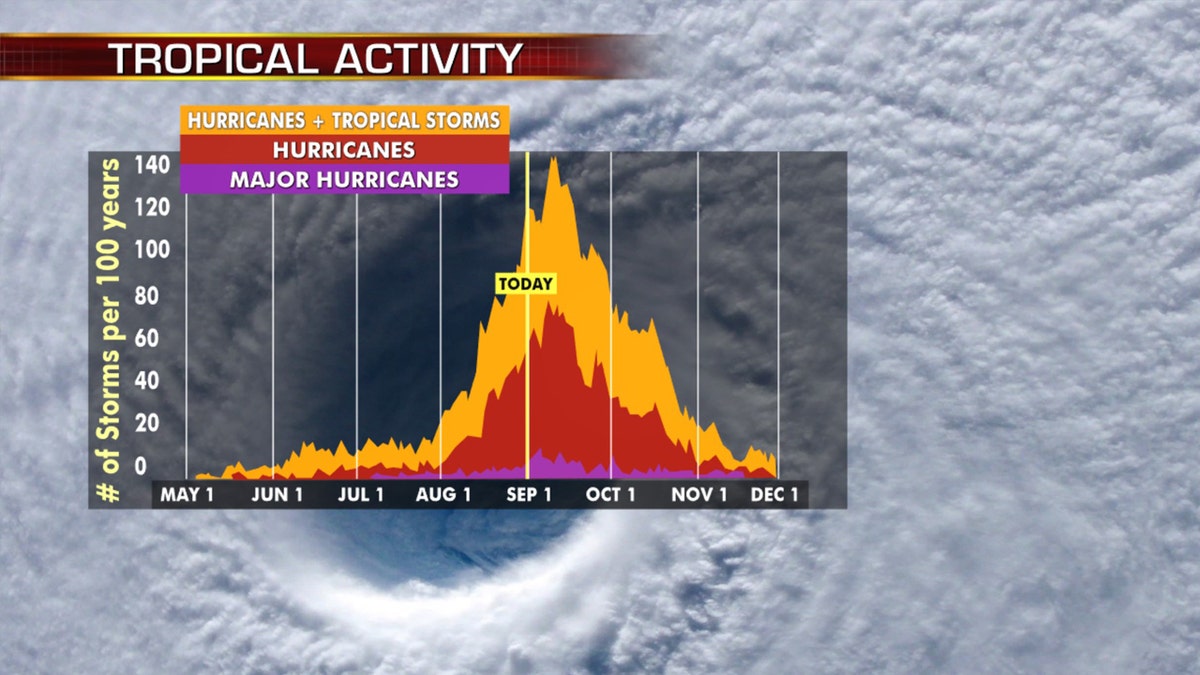
Hurricane season peaks in the month of September. (Fox News)
The recent activity comes as the hurricane season has entered its most active month. The historical hurricane activity climbs through Sept. 10, when it peaks and starts to slowly go back down.
Historically, about two-thirds of all Atlantic hurricane activity happens between Aug. 20 to Oct. 10, Klotzbach tweeted earlier this month.
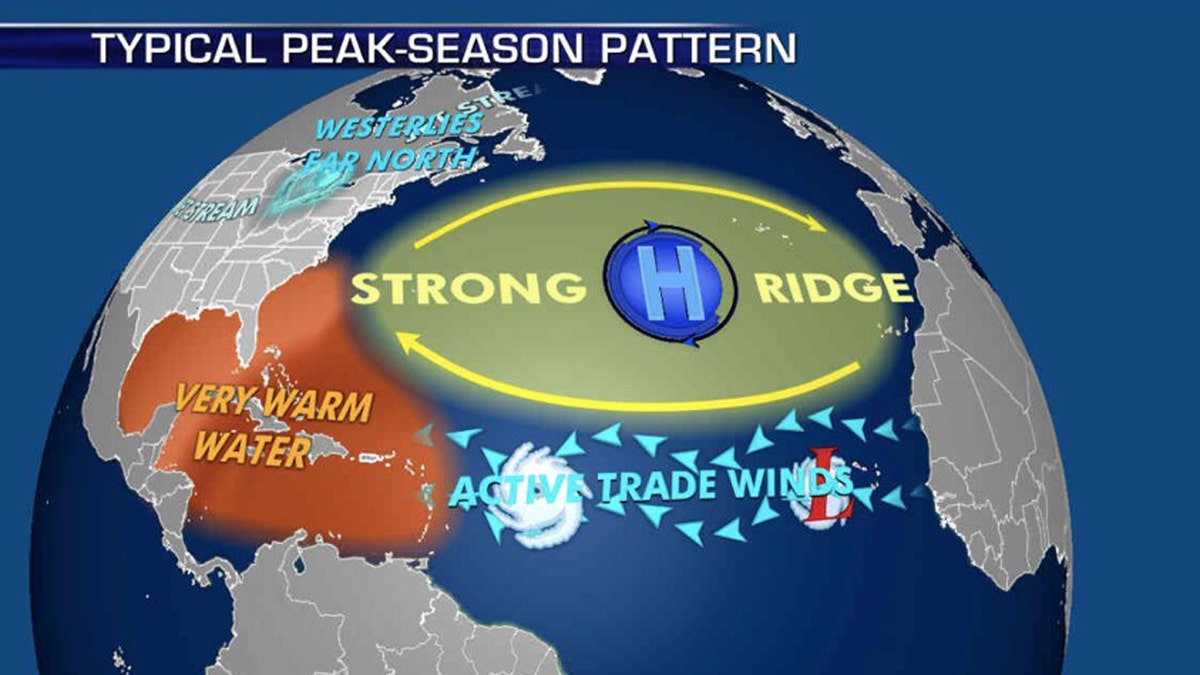
The patterns during the peak of hurricane season that influence where storms travel. (Fox News)
NOAA forecasters are now calling for up to 25 named storms with winds of 39 mph or higher; of those, seven to 10 could become hurricanes. Among those hurricanes, three to six will be major, classified as Category 3, 4 and 5 with winds of 111 mph or higher.
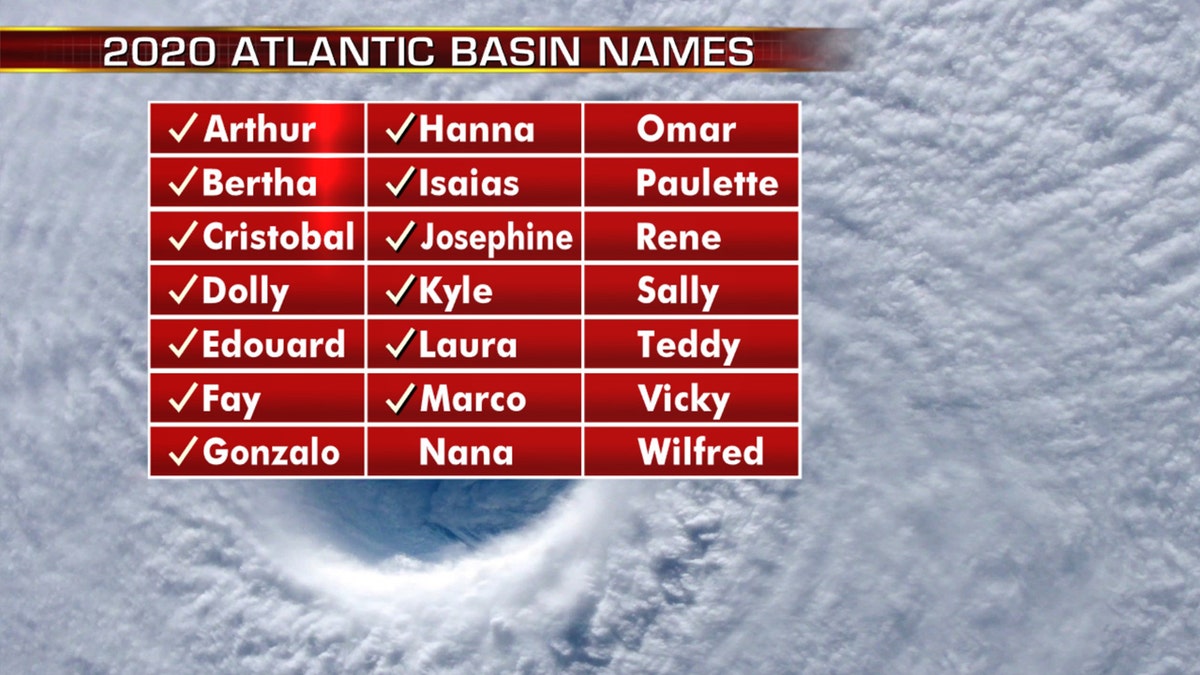
The names of the 2020 Atlantic hurricane season. (Fox News)
That's far above an average year. Based on 1981 to 2010 data, that is 12 named storms, six hurricanes and three major hurricanes. So far this year, there have been 14 named storms, including four hurricanes.
CLICK HERE FOR THE FOX NEWS APP
The 2020 Atlantic hurricane season runs from June 1 to Nov. 30 and includes the names: Arthur, Bertha, Cristobal, Dolly, Edouard, Fay, Gonzalo, Hanna, Isaias, Josephine, Kyle, Laura, Marco, Nana, Omar, Paulette, Rene, Sally, Teddy, Vicky and Wilfred.
Fox News' Brandon Noriega and the Associated Press contributed to this report.





















